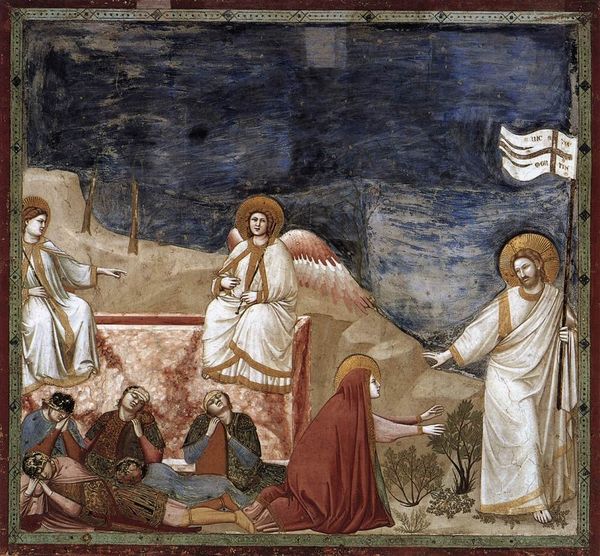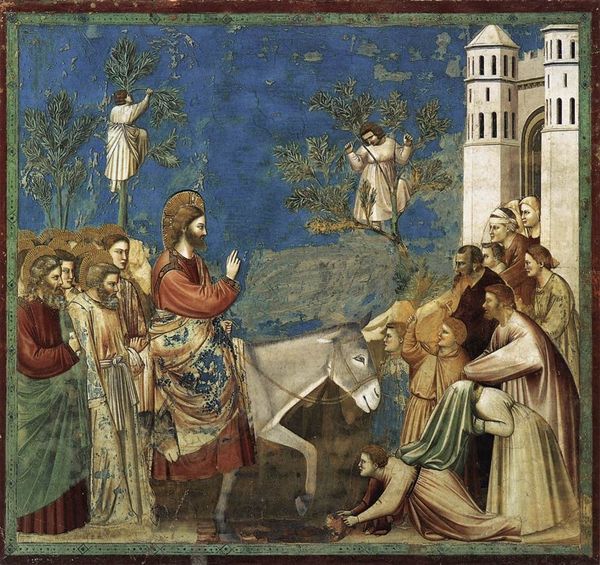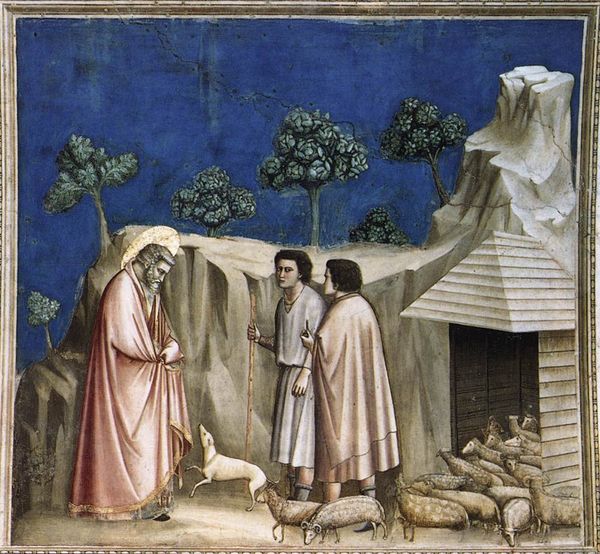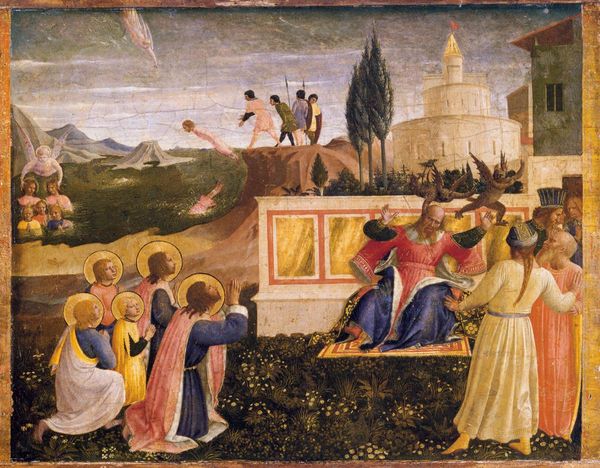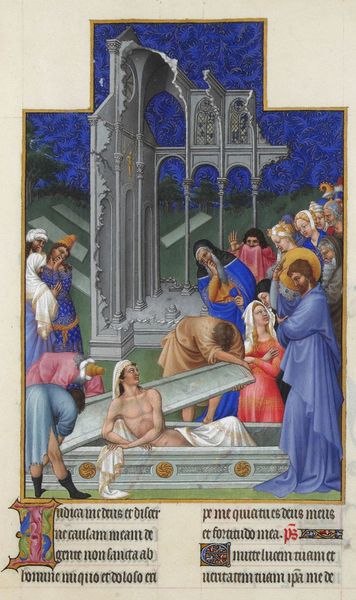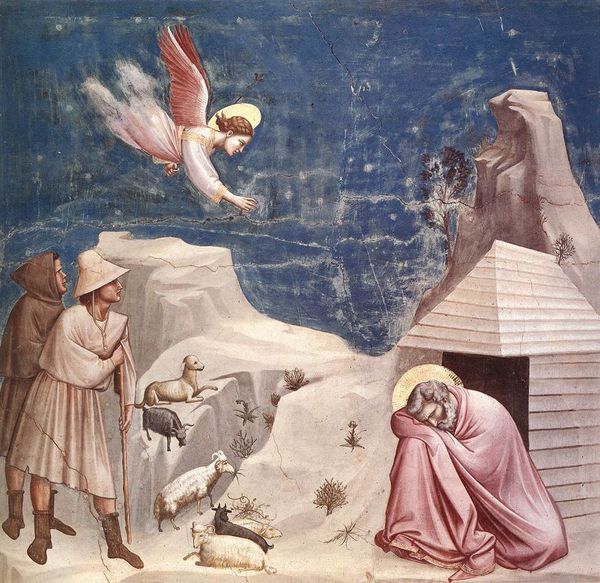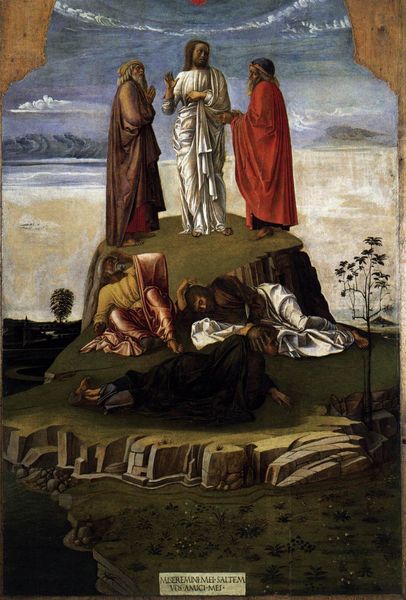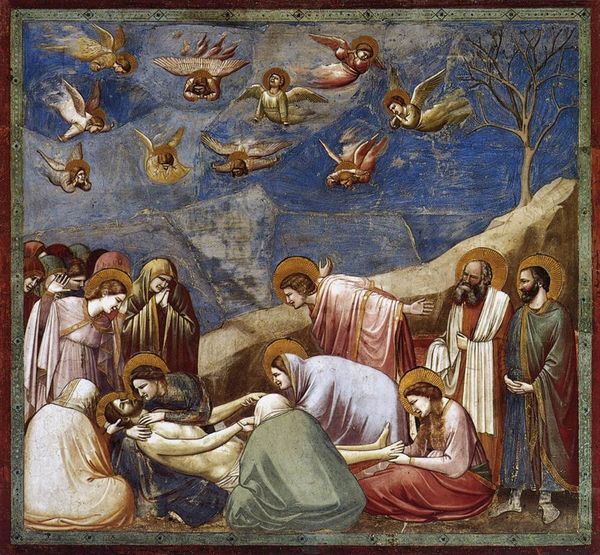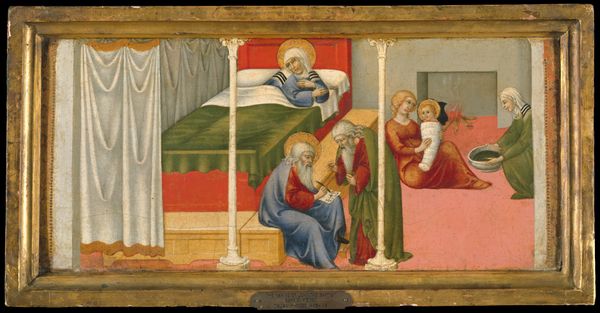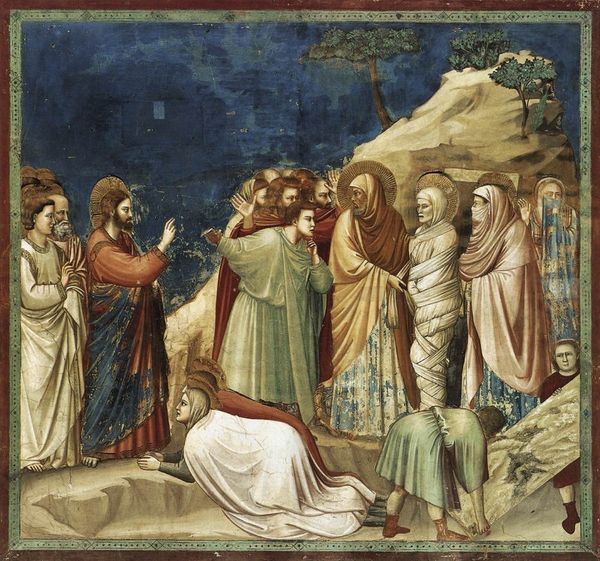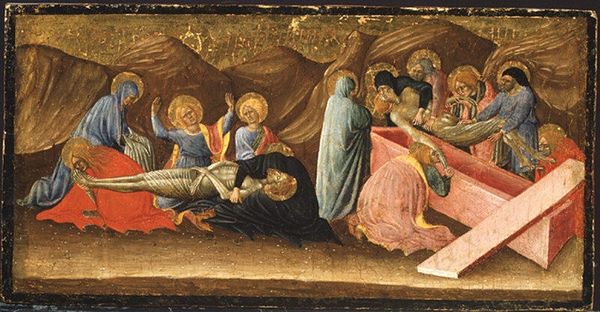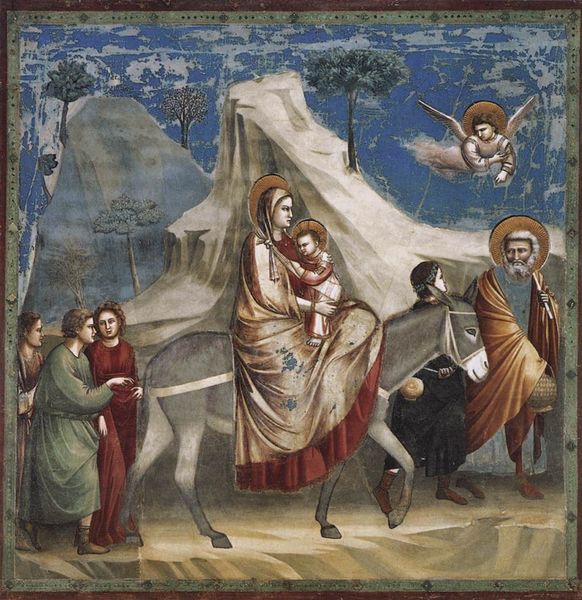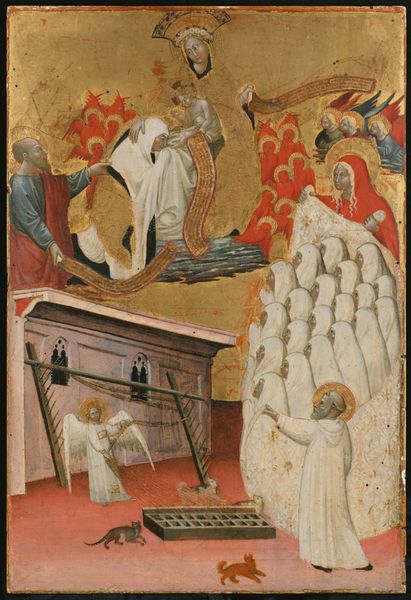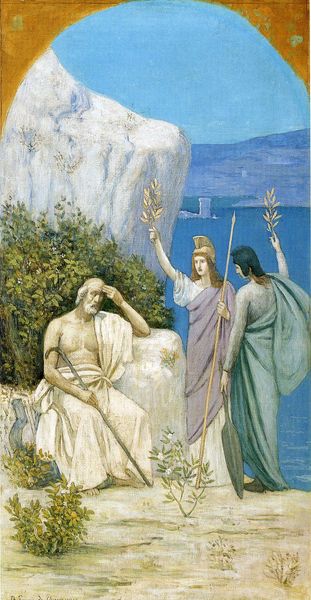
painting, fresco
#
medieval
#
narrative-art
#
painting
#
prophet
#
sculpture
#
gothic
#
figuration
#
fresco
#
oil painting
#
christianity
#
history-painting
#
early-renaissance
Dimensions: 200 x 185 cm
Copyright: Public domain
Giotto painted “Joachim's Sacrificial Offering” on the walls of the Scrovegni Chapel in Padua. The hand of God emerges from the heavens over an altar ablaze with sacrifice. Joachim, kneeling, attempts to make his offering. The animals gathered at the altar speak to ancient sacrificial rituals, resonating with scenes from both Greek and Near Eastern traditions. Consider the hand of God. It transcends its immediate context, echoing in countless images of divine intervention across cultures. This motif reminds us of Zeus wielding his thunderbolt or the benevolent hands in Byzantine mosaics. Such gestures tap into our collective memory, evoking a primal recognition of higher powers. The rejection of Joachim's sacrifice stirs deep-seated emotions – feelings of inadequacy, rejection, and the longing for divine acceptance. The symbol is not static; it evolves. The motif of the divine hand resurfaces throughout history, shifting from a symbol of power to one of blessing. It becomes embedded in our collective consciousness, a testament to the enduring power of images and the cyclical nature of cultural memory.
Comments
No comments
Be the first to comment and join the conversation on the ultimate creative platform.
